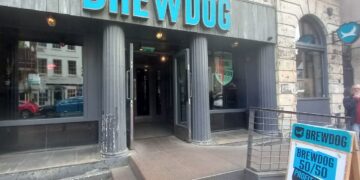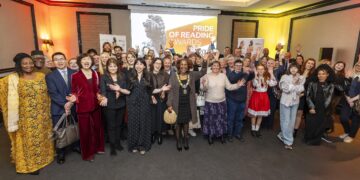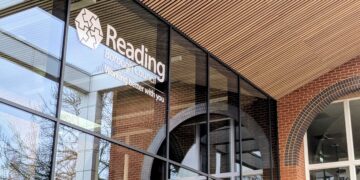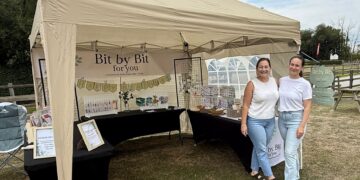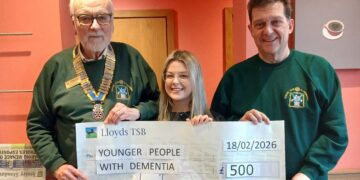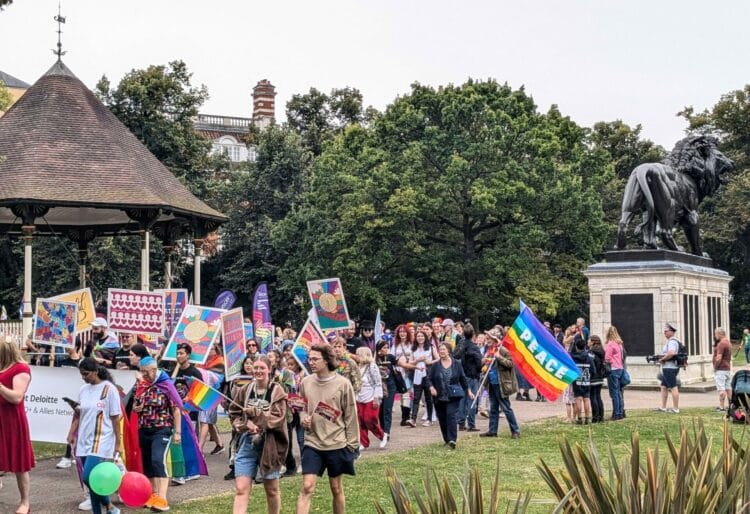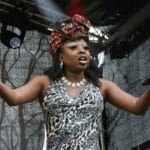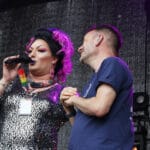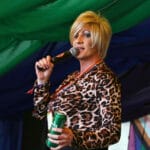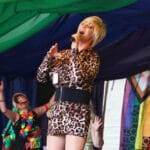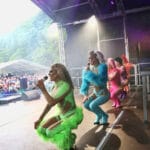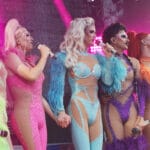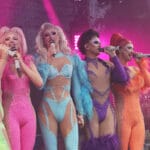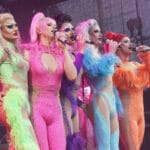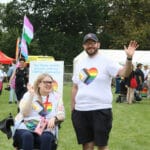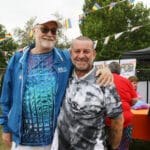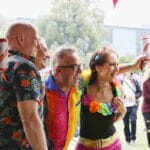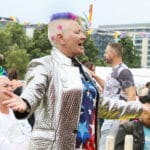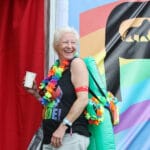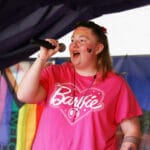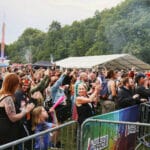ON SATURDAY, Reading Pride returned once again to celebrate the town’s diverse queer community with a day of music, events, and outreach from local organisations.
While the Main Stage saw performances from the Rock Choir, Aaron Sibley, Belle, Lolly, Kara Marni, and Queenz, Pride Alive welcomed The Mazing Tiger band, Readiophonics, Saxcelerate, Haylorr, Nicole Allan, and Colours and Fires.
Elsewhere the event featured sets from Reading’s own Wilma Fingadoo, Son of a Tutu, Lady M, Bodacia, and Martha D’Arthur.
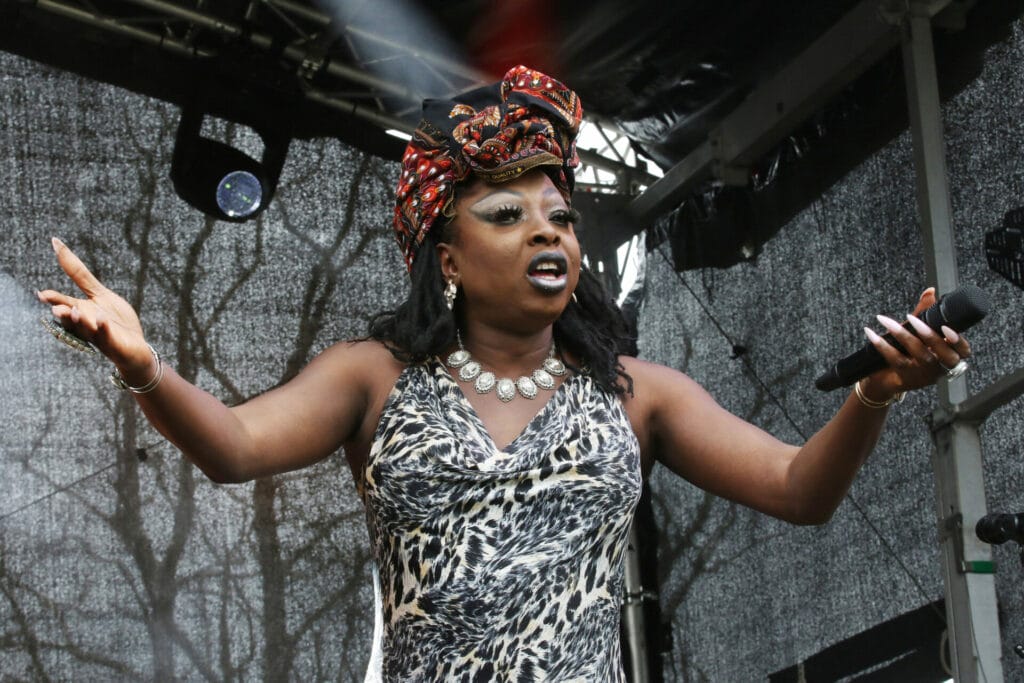
It also welcomed representatives from organisations across Berkshire, promoting healthcare services, charities, and social groups.
Among them was Brighter Futures for Children (BFfC), which provides children’s services in Reading.
Amanda White, of BFfC’s Support and Families Team and Domestic Abuse lead, said that it was important for the organisation to be represented at the event.
“We need to show that it is okay to be your authentic self and that means that you deserve to be embraced in all sorts of walks of life.
“That includes in our youth work or children’s services, or fostering, having a space to be yourself and giving them a voice is the only way to move forward.
“We want to promote everybody being able to live and be the best version of themselves–not only for those we help but for workers and colleagues too; there are still barriers to equality which need to be removed, still a stigma.”
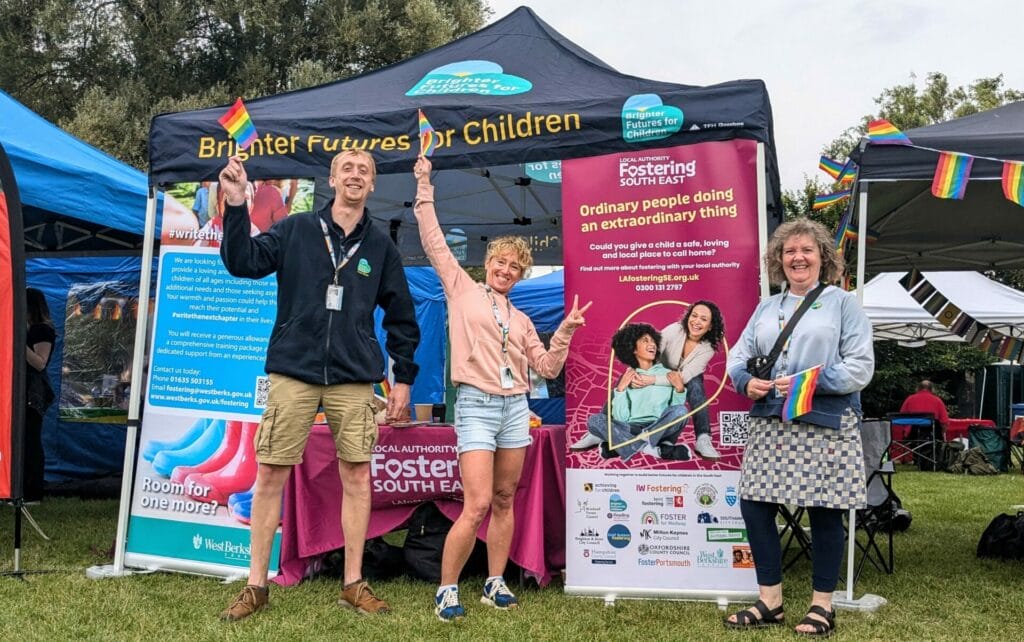
She added: “Until we’re able to embrace everyone, we’re not going to be able to have a better world where we support everyone.”
Chris, from Brighter Futures for Children’s Youth Work team, said: “We run a youth club twice a month for a couple of hours where young people can come and relax in a safe space.
“For us, it’s about giving young people more opportunities to develop life skills, such as communicating and building friendships, and we’re here to let them know about that service.”
More information about fostering is available via: readingfostering.co.uk
Further details about Brighter Futures for Children are available via: brighterfuturesforchildren.org
This year the NHS also hosted a whole tent with stalls featuring information and advice on a range of services.
Alex Gild, deputy chief executive at Berkshire, Healthcare NHS Foundation Trust said: “It’s really important for services to come into their community and help people understand what’s available to them by taking part in wonderful events like Pride.
“It’s a real opportunity to engage and explain what we offer, to promote those services for the benefit of people’s health and well-being through treatment and prevention.
“There can be barriers to that; there’s often a view that healthcare isn’t inclusive or doesn’t understand the issues- this is our opportunity to show that we do engage and to build that trust
“And–most importantly–help people get the health and well-being services they need.”
He explained: “We’ve been coming to Reading Pride for a number of years now; it’s a fantastic event which attracts so many people, and our staff love to take part.
“We value that opportunity; it’s a great way of engaging where everyone is celebrating their pride- we’re here to provide that service”
Another of the health organisations present was Thames Valley Positive Support, which raises awareness about HIV and provides a number of services across Berkshire for prevention.
Sarah McAdam, CEO of TVPS, said: “It’s the perfect platform to raise awareness about HIV, the importance of testing, and especially to publicise our U=U programme, in a quick and easy way.
“It’s also a great opportunity to meet with the public- it’s really important
“With funding cuts it becomes so much harder to get that message out there:
“We’re not funded to promote safe sex across Berkshire, and that’s why events like this are so important– those messages really still need to be heard, and the issues aren’t going away.
“The number of people being diagnosed is increasing and we know that knowledge about HIV is still very poor.”
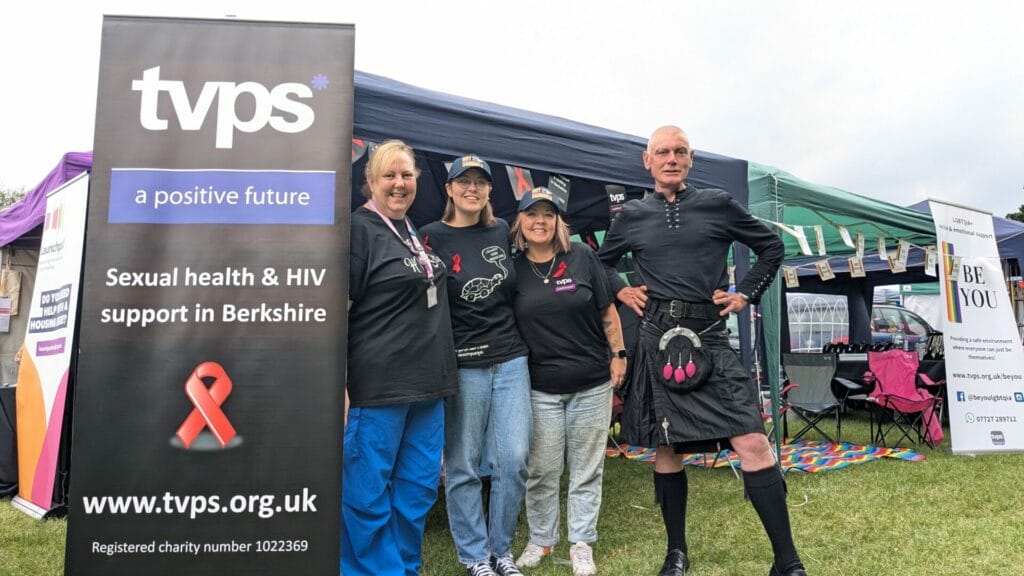
She explained: “The medication has moved on–HIV isn’t the killer it used to be–but the stigma around it is still very much stuck in the 80s.
“What we need is a national HIV campaign- people talk about the tombstone adverts, everyone remembers them, and it was very scary.
“It wasn’t about protecting yourself; we’ve had nothing since, and so it’s not surprising people don’t have the knowledge around HIV that they do about other conditions.
“Pride crosses those barriers, even though it’s face to face, because often there’s nowhere else to access that information and help people increase their knowledge, which can be difficult elsewhere.”
More information about TVPS is available via: tvps.org.uk
Among those more closely associated with Pride itself were MyUmbrella, which raises awareness of and provides support for lesser-known identities, LGBT+ and Club FOD, which provides a social outlet for Reading’s queer community.
Brendan Nagle, from Club FOD, said: “When you look around on a day like today, it feels like people are trying to create division elsewhere.
“People are well within their right to boycott, but Pride is here for everybody: people fight really hard for division when we’re fighting to build a community which includes everybody.
“We’ve grown and grown, even in the three years that Club FOD has been here, but the response has been amazing; incredibly positive.
“The event has been even more inviting than other years, and it means people come in just on the off chance.”
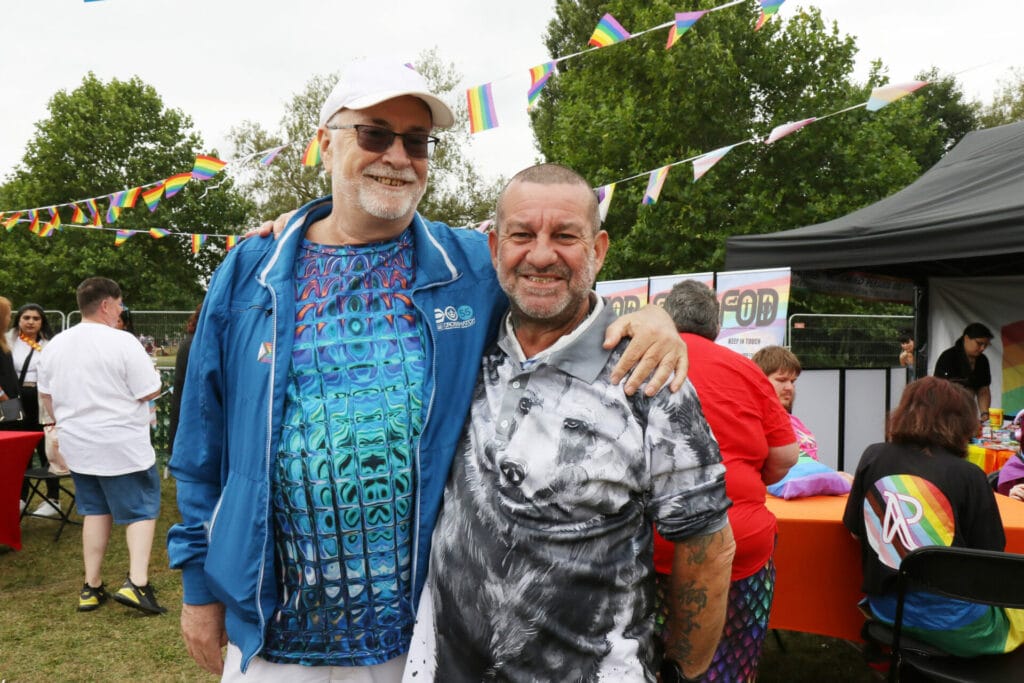
Among the recreational organisations taking part was Reading Renegades Rugby Football Club, an inclusive rugby club which also hosts social events.
Joel Roach, treasurer, said: “It’s hugely important to be at events like this, we exist as a community club and we’re here to represent the LGBTQ+ community of Reading.
“As a team, we have a lot of queer people who don’t immediately assume rugby is their first point of connection with their community so for us to be here means we can be inclusive as a team and show that it is something you can be involved in, without barriers to entry.”
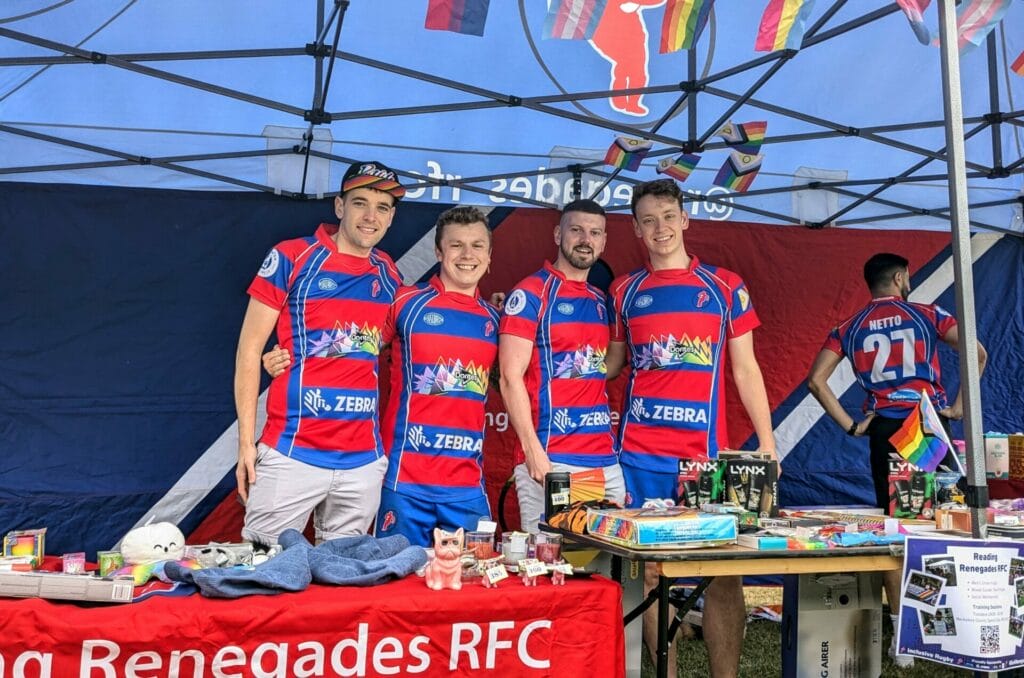
“A lot of people have very valid concerns about rugby and sport, so coming to events such as this means we can share that with people in the community and that they can be part of the family.
“There’s a lot of difficult culture around rugby, particularly the toxic masculinity which comes with men’s rugby, and we’re here to challenge that.”
He explained: “We include straight players too, and they join us because they want to be part of an inclusive team
“Come and play rugby, but come and be part of the community too.”


